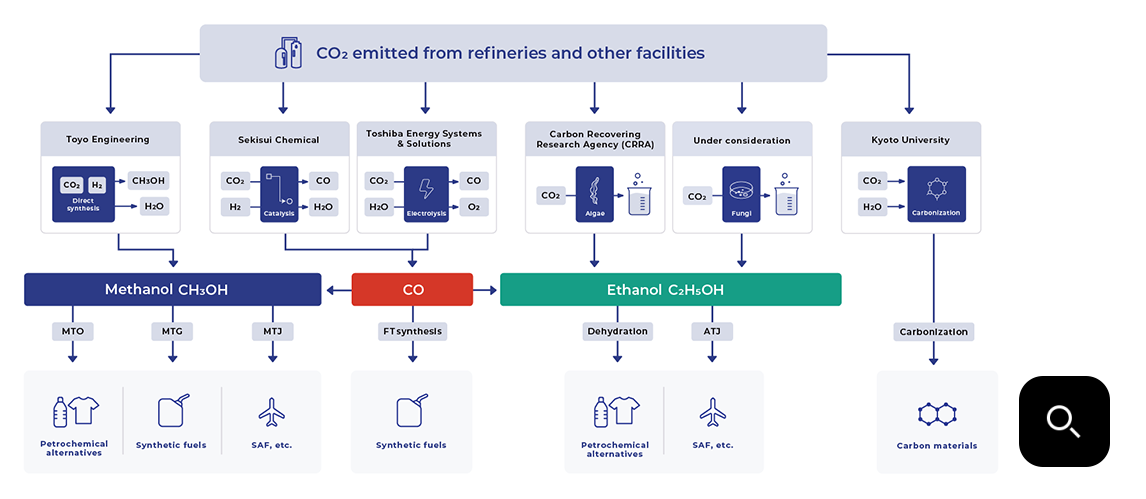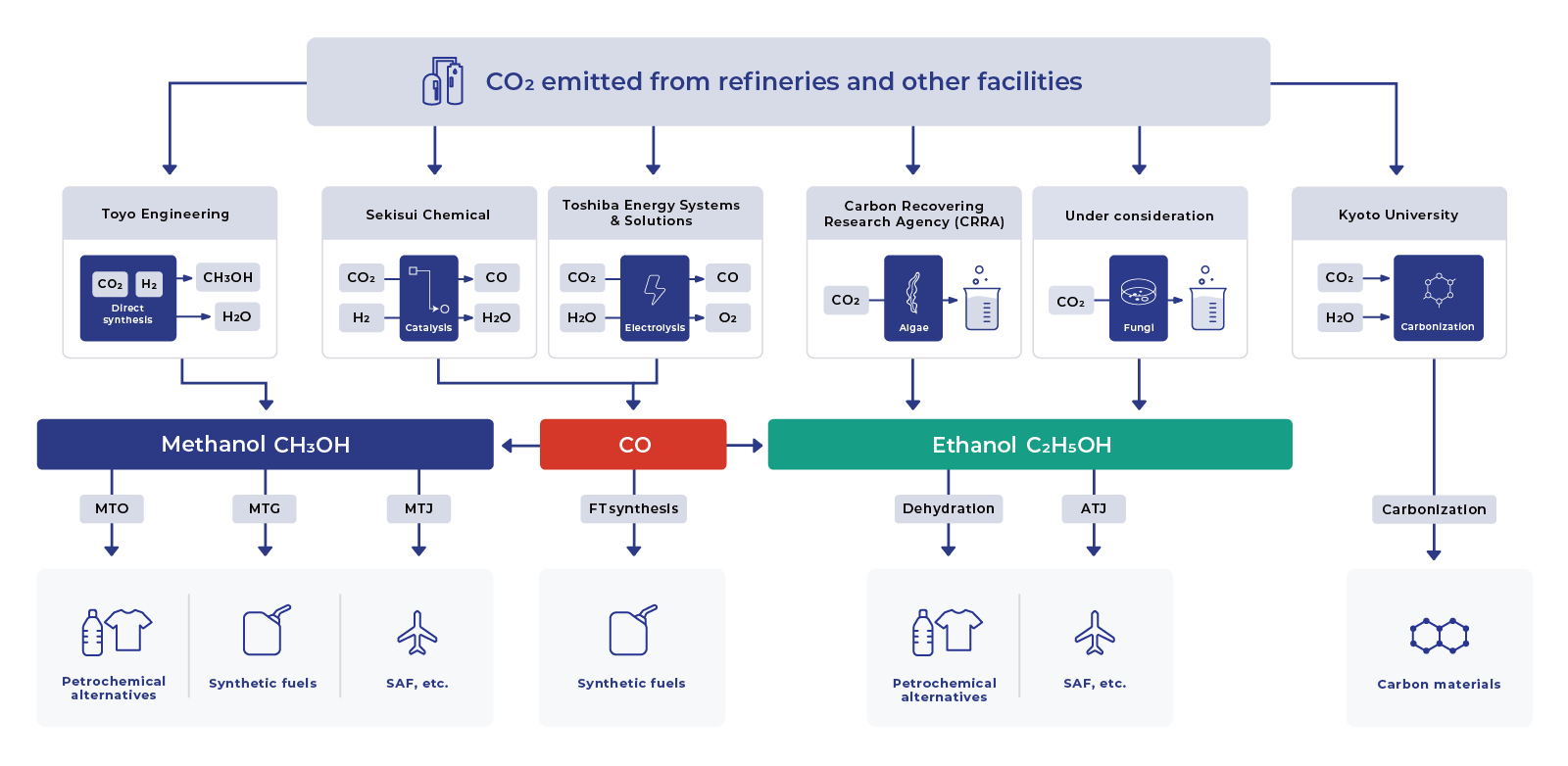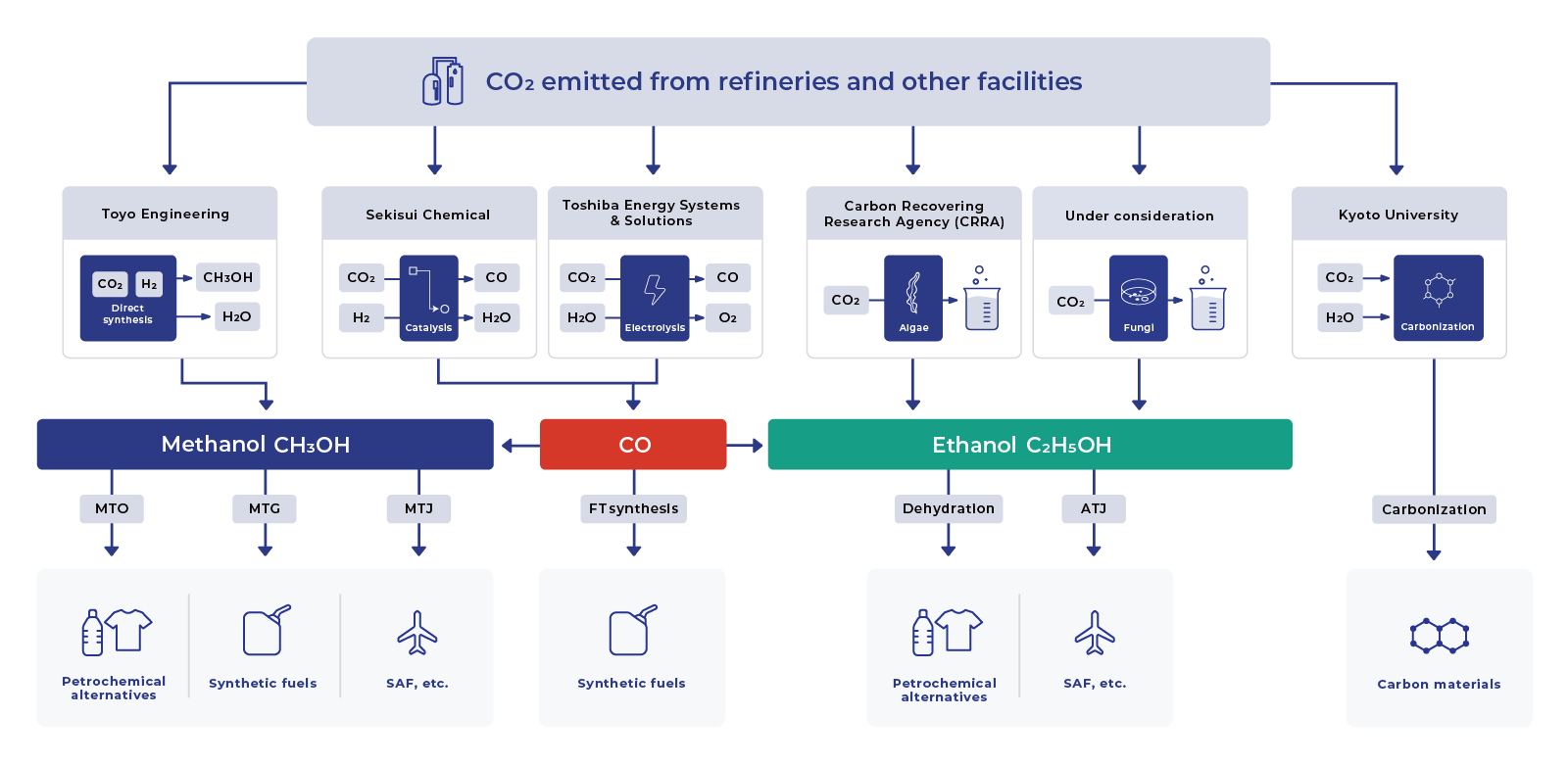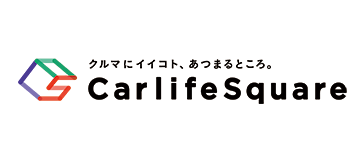Business Overview

In the Petroleum Business, Cosmo Oil, a core company of the Cosmo Energy Group, is mainly engaged in crude oil procurement, production, distribution, and importation and exportation of petroleum products. Cosmo Oil Marketing, which is also a core company, sells Group products, including petroleum products, to corporate and individual customers.
Business Strategy
As the production and sales division for petroleum products, the Petroleum Business ensures world-class, stable operations and stable supply to customers, providing value ahead of competitors by developing brand products that address the diverse needs of customers given the accelerating trend towards decarbonization. At the same time, we are developing products and deploying services by seizing business opportunities, including the shift to EVs and the expansion of green electricity, the development and popularization of new fuels such as SAF*1, as well as the expansion of CASE*2, MaaS*3, cashless payments, and so on.
Identified Risks
- Risks related to crude oil price and crude oil procurement
- Risks related to petroleum product prices and demand
- Risks related to accidents at and leakage from refineries and other facilities
- Risks of business continuity associated with rapid environmental changes
- Risks related to book value devaluation of inventories due to a decline in profitability
Opportunities
- Globally accelerating trends toward carbon neutrality and measures for shifting to a decarbonized society Measures for shifting to a decarbonized society
(initiatives regarding the shift to EVs, green electricity, and new fuels) - Recovery in demand for jet fuel attributed to the relaxation of COVID-19 border controls
- CASE (mobility supply, maintenance, etc.) trends
- Changes in customer trends, digitalization, and the wider use of cashless payments
Strengths
- Maintaining high operating rates at refineries despite declining demand
(a supply shortage position associated with fuel supply to Kygnus Sekiyu) - Reinforcing connections with customers, and presence of connections with service station dealers as our partners
- Development of brand products
(Commitment Compulsory Car Inspection, Cosmo Denki (Electricity), Yasashi (friendly) Car Sharing, and Cosmo My Car Lease) - High level of customer satisfaction, diversification of payment methods, and value creation focused on branding activities

In our Oil Refining Business, we began supplying fuels to Kygnus Sekiyu in FY2019, and were able to do so without lowering the operating rates at our refineries despite us maintaining a supply shortage position. We believe that, amid the ongoing consolidation of the oil industry, our strategy of placing importance on the supply-demand balance has proved effective.

In the Petroleum Sales Business, we launched Cosmo My Car Lease in FY2014 in response to the changing environment surrounding , and the in FY2019 on the back of the trend toward digitalization. Furthermore, we will continue to address diversifying car life needs by expanding Cosmo My Car Lease Store nationwide as a specialty store for vehicle sales.
In the Electricity Retail Sales Business, we began to sell and Cosmo Denki Green for households in FY2019. Further, from FY2020, we began to provide Cosmo Denki Business and Cosmo Denki Business Green services to our corporate customers. In September 2021, we released , a one-stop solution to help companies and local municipalities introduce and effectively utilize renewable energy and EVs for a decarbonized society.
*1 SAF: Sustainable Aviation Fuel This fuel is produced mainly from biomass-derived raw materials, including plants, as well as waste and waste food oil from restaurants and households. It enables the reduction of CO2 emissions compared to fossil fuels.
*2 CASE: An acronym for Connected, Autonomous, Shared & Services, and Electric.
*3 MaaS (Mobility-as-a-Service): A next-generation transportation service that combines conventional means of transportation and traditional transportation services with various technologies, such as automated driving and AI.
Ensuring High Levels of Safety at Refineries
The Cosmo Energy Group is committed to operating refineries that ensure a sustainable energy supply while aiming to reduce our environmental impact and enhance safety. With these priorities in mind, we have further strengthened our advanced safety system and introduced more efficient production processes, thereby guaranteeing operations that are both environmentally and socially responsible.
To proactively address future energy challenges, we are introducing new technologies, pursuing digitization, and optimizing energy use. Through these efforts, we seek to further bolster our refineries’ role in realizing a sustainable society, with an increased focus on providing a stable energy supply and protecting the environment.
To ensure that we continue to maintain safe and accident-free refineries, we remain dedicated to implementing and continuously improving our safety management activities. Additionally, we are committed to undertaking and evolving our security management practices through the strategic use of technology.
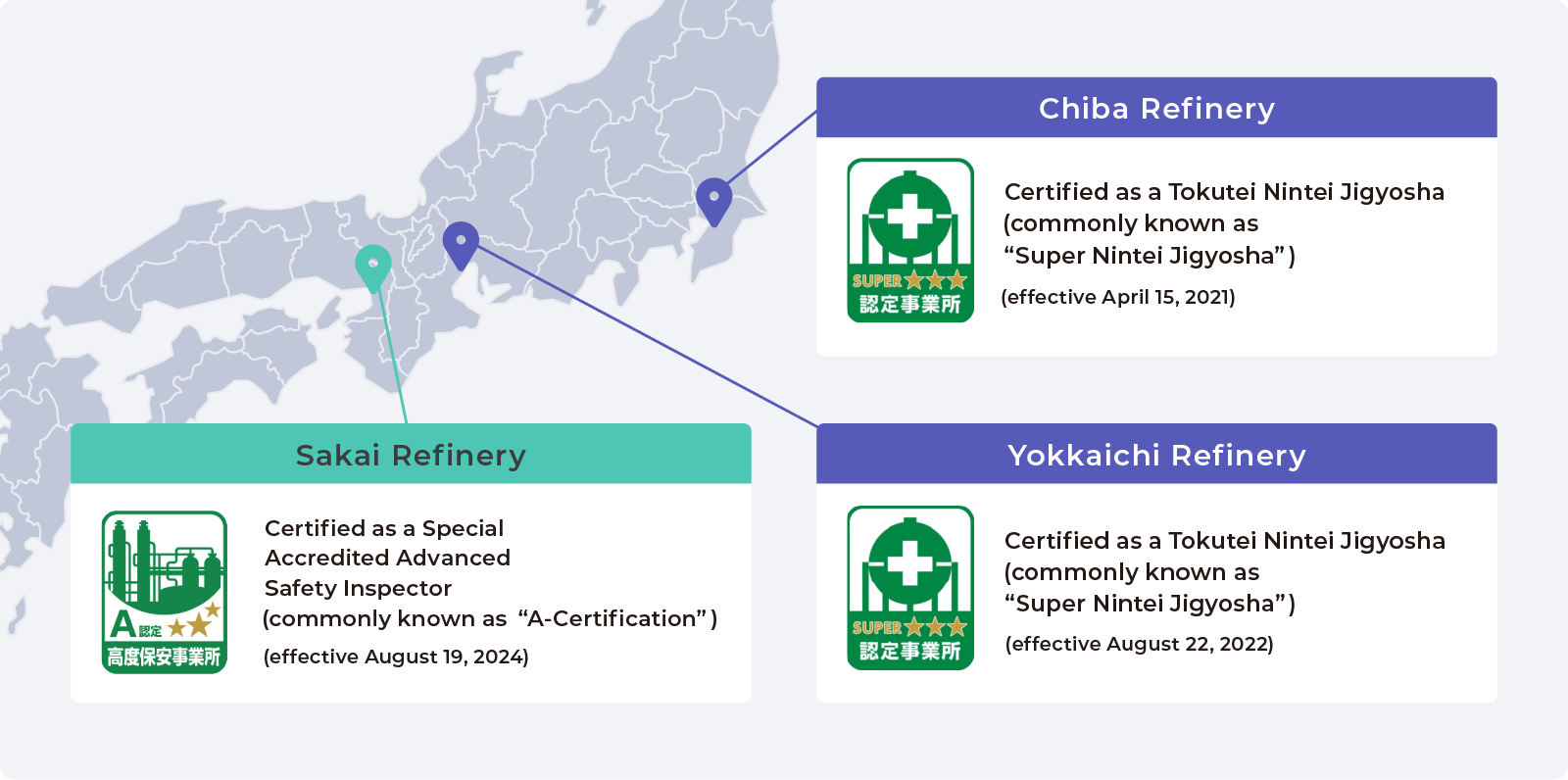
Tokutei Nintei Jigyosha (Super Nintei Jigyosha)
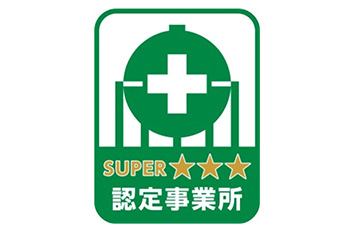
The Chiba Refinery and Yokkaichi Refinery obtained Tokutei Nintei Jigyosha (commonly known as "Super Nintei Jigyosha") certification on April 15, 2021 and August 22, 2022, respectively, under the new Nintei Jigyosha System outlined in the High Pressure Gas Safety Law enacted by Japan's Ministry of Economy, Trade and Industry (METI).
Special Accredited Advanced Safety Inspector (commonly known as “A- Certification”)
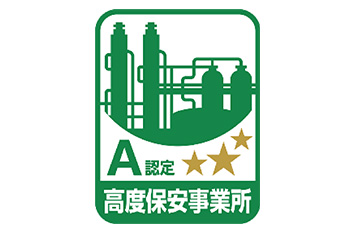
Effective August 19, 2024, the Sakai Refinery was certified as an Accredited Advanced Safety Inspector (commonly known as "A-Certification") under the High Pressure Gas Safety Act, which was amended on December 21, 2023.
In addition to the Super Nintei criteria, A-Certification comprises the following four requirements, including cybersecurity measures, with the goal of driving smart safety management. Specifically, it expands upon the Super Nintei criteria in the following ways:
Commitment from senior management
Establishment of a compliance framework and adherence to corporate governanceAdvanced risk management system
Equivalent to the Super Nintei criteriaUtilization of technology
Adoption of technologies befitting the company's business operationsResponse to cybersecurity and other related risks
Implementation of measures in accordance with industry-specific cybersecurity guidelines
Initiatives to Enhance Enterprise Value: Securing Profitability in Oil Fields and Maximizing Refinery Utilization
The Cosmo Energy Group continues to ensure safe operations and a stable energy supply through its three-refinery system, comprising refineries strategically located in major metropolitan areas. Following the closure of the Sakaide Refinery in FY2013 and the start of fuel oil supply to Kygnus Sekiyu in FY2019, the Group took up a short position, where sales volume exceeds production volume.
In FY2021, the Chiba Refinery’s acquisition of Super Nintei certification marked a key milestone, prompting further enhancements to our advanced safety practices across all refineries. By maintaining high utilization rates at refineries, we continue to strengthen profitability, with a strong focus on our Oil Business.
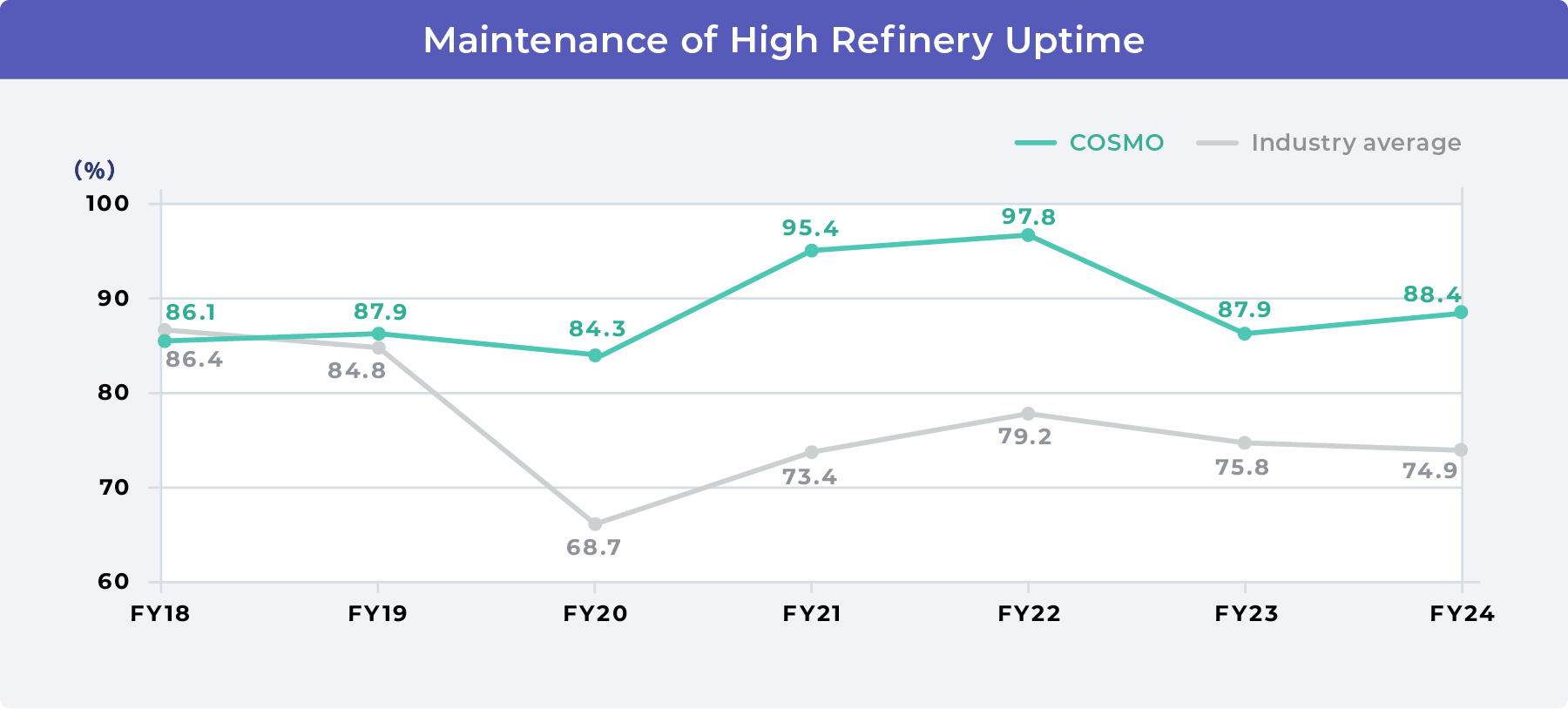
Pursuing Low Carbonization in our Oil Business
We actively partner with various companies to explore technologies for Carbon dioxide Capture and Storage (CCS), a process that involves separating, capturing, liquefying, and securely storing CO₂ from refineries and other facilities underground or in designated storage sites. Additionally, we are considering Carbon dioxide Utilization (CU) technologies, which convert captured CO₂ into chemical products or fuels for effective and sustainable use.
Diagram of the CO2 Capture and Storage (CCS) Process

Diagram of the CO2 Utilization (CU) Process
